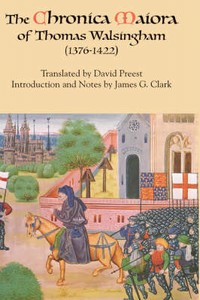
"Abduction, surgery, madness: an account of a little ..." Topic
1 Post
All members in good standing are free to post here. Opinions expressed here are solely those of the posters, and have not been cleared with nor are they endorsed by The Miniatures Page.
In order to respect possible copyright issues, when quoting from a book or article, please quote no more than three paragraphs.
For more information, see the TMP FAQ.
Back to the Medieval Media Message Board
Areas of InterestMedieval
Featured Hobby News Article
Featured Link
Top-Rated Ruleset
Featured Showcase Article The Editor tries out a boardgame - yes, a boardgame - from battle-market magazine.
Featured Workbench Article Dervel  returns from Mexico with a new vision for making palm trees from scratch. returns from Mexico with a new vision for making palm trees from scratch.
Featured Profile Article Part II of the Gates of Old Jerusalem.
Featured Book Review
Featured Movie Review
|
Please sign in to your membership account, or, if you are not yet a member, please sign up for your free membership account.
| Tango01 | 06 Jan 2014 12:29 p.m. PST |
… red man in Thomas Walsingham's Chronica maiora. "The Chronica maiora, however, should not be viewed merely as a significant resource for the political historian. Like twelfth- and thirteenth-century chroniclers before him, Walsingham incorporated accounts of prodigies into his history. He includes stories of portentous raining blood, troops of mysterious marching black knights, and cruciform shapes in the sky–to name but a few –and such inclusions should be seen as immensely valuable to the cultural historian and, indeed, the student of literature. This penchant for the supernatural may initially seem somewhat unusual for such a politically minded historian as Walsingham, but accounts of portents and prodigies were not uncommon in the medieval chronicle tradition, and in nearly all cases these marvels ultimately serve as vehicles for social or political commentary. Furthermore, Walsingham's literary interests were wide-ranging, and his approach to history writing may well have been affected by his other intellectual pursuits. Interested in ancient history, Walsingham wrote a version of the fourth-century history of the Trojan War by Dictys Cretensis, a commentary on Ovid's Metamorphoses together with an account of the origins of the ancient gods, and a history of Alexander the Great. Walsingham was also evidently influenced by the extremely popular Mandeville's Travels, a work written in or soon after 1356, whose author claims to have been bom and educated at St Albans. Walsingham was, it seems, intrigued by the wonders of foreign lands described in the Travels and he occasionally made room for accounts of the exotic East in his own historical writings. This taste for prodigies and marvels, moreover, may also help to explain why Walsingham so frequently incorporated marvellous accounts into his history of his own native England. Perhaps the most striking of such prodigies is the story of a young boy who encounters a mysterious little red man…"

Full comment here.
link Hope you enjoy!. Amicalement
Armand |
|

